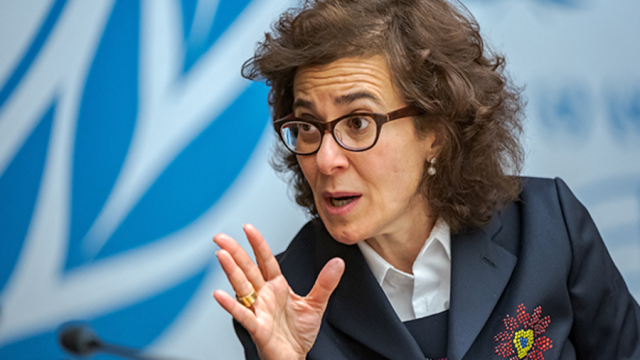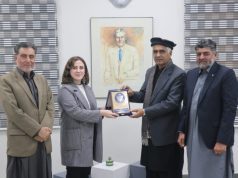UNITED NATIONS, Wednesday, June 18, 2025 (WNP): As the Iran-Israel conflict entered its sixth consecutive day, the United Nations’ Deputy High Commissioner for Human Rights, Nada Al-Nashif, on Wednesday issued a strong call for urgent diplomatic dialogue to halt the ongoing missile strikes between Tehran and Tel Aviv.
The conflict escalated last Friday when Israel launched targeted strikes on Iranian nuclear and military facilities, triggering a wave of retaliatory attacks from Iran on Israeli cities.
“The UN Human Rights Office urges de-escalation and immediate diplomatic negotiations to stop the violence and find a sustainable path forward,” Al-Nashif told the Human Rights Council in Geneva during a session reviewing Iran’s human rights record. “We are closely monitoring the situation and have received alarming reports that thousands of residents are fleeing parts of Tehran due to widespread evacuation alerts.”
According to the latest casualty figures, over 200 people have been killed in Iran and 24 in Israel since hostilities began. Both countries witnessed sustained overnight attacks, with reports of damage to civilian infrastructure in densely populated areas.
Ms. Al-Nashif stressed the need for all parties to adhere strictly to international humanitarian law: “It is imperative that both sides respect the laws of war, particularly the obligation to protect civilians and civilian infrastructure.”
She also urged all international actors with influence over the conflicting parties to prioritize diplomatic engagement to prevent further loss of life.
Meanwhile, in a related development, the International Atomic Energy Agency (IAEA) confirmed that two major Iranian nuclear facilities—TESA Karaj and the Tehran Research Centre—suffered significant damage in Israeli strikes.
“At the Tehran site, a building involved in the manufacturing and testing of advanced centrifuge rotors was hit,” the IAEA said. “At Karaj, two buildings used to manufacture various centrifuge components were completely destroyed.”
Addressing the Council after Ms. Al-Nashif, Iran’s Permanent Representative to the UN in Geneva, Ambassador Ali Bahreini, strongly condemned the Israeli attacks.
“There has been no graver violation than the act of aggression committed on 13 June,” Bahreini declared. “Indiscriminate bombings of residential neighborhoods, targeting of water resources, and deliberate strikes on nuclear sites are directly endangering civilians and essential infrastructure.”
He warned that such attacks on nuclear facilities could lead to dangerous radioactive leaks, saying, “This is not merely an act of war against a state, it is a war against humanity.”
Ambassador Bahreini also criticized the global community’s silence, calling for international accountability and firm condemnation of Israel’s actions. “This impunity must end,” he said. “Israel is not just attacking a country—it is attacking the very fabric of human rights and the principles of humanity.”
The Council session proceeded without Israeli participation, as Israel had withdrawn from the UN human rights body earlier this year.




